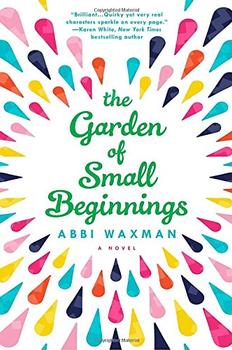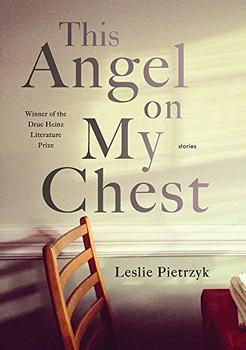Summary | Excerpt | Reading Guide | Reviews | Beyond the book | Read-Alikes | Genres & Themes | Author Bio

From the book jacket: In
an age in which women are expected to be high achievers,
thirty-six-year-old Sophie Stanton desperately wants to be a
good widow--a graceful, composed, Jackie Kennedy kind of
widow. Alas, Sophie is more of a Jack Daniels kind.
Self-medicating with cartons of ice-cream for breakfast,
breaking down in the produce section at the supermarket,
showing up to work in her bathrobe and bunny slippers - soon
she's not only lost her husband, but her job, her house, and
her waistline.
Desperate to reinvent her life, she moves to Ashland, Oregon
- but instead of the way it is in the movies (heroine being
swept off her feet) - she finds herself in the middle of a
madcap adventure with a darkly comic edge involving a
thirteen-year-old with a fascination for fire and an
alarmingly handsome actor who inspires a range of feelings
she can't cope with--yet.
Comment: This was one of the big debuts of 2004.
Publishers Weekly reflected the general opinion saying
'throughout this heartbreaking, gorgeous look at loss,
Winston imbues her heroine and her narrative with the kind
of grace, bitter humor and rapier-sharp realness that will
dig deep into a reader's heart and refuse to let go.'
The only less than positive (actually positively vitriolic) review was
from Kirkus, who describing it as an 'effervescent, silly
debut: so eager to please that it reads like the speech of
the candidate who won't open his mouth before the polls are
consulted.'
Personally, I enjoyed it, even though it did seem a little
incredible to me that someone could go from the bottomless
despair of grief to the heights of competence, and even
happiness, in the timescale of the book (more than that I
can't say without spoiling the plot), but I have minimal
first hand experience to draw on in order to make that
opinion. However, it was a fun read and it was
interesting to see the 'grieving process' for the messy
thing it is. Many books and articles inspired by
Elisabeth Kubler Ross's
Five Stages of Dying (see sidebar) give the impression that
grieving and dying are like traveling through the carriages
of a train with one way doors - move through one carriage and
you enter the next with no going back, when in reality the
process is never so tidy.
![]() This review
first ran in the April 6, 2005
issue of BookBrowse Recommends.
This review
first ran in the April 6, 2005
issue of BookBrowse Recommends.

If you liked Good Grief, try these:

The Garden of Small Beginnings
by Abbi Waxman
Published 2017
Not since Good Grief has a book about a young widow been so poignant, funny, original, and utterly believable. A compelling debut novel about loss.

by Leslie Pietrzyk
Published 2017
Winner of the 2015 Pitt Drue Heinz Literature Prize.
Analyzing humor is like dissecting a frog. Few people are interested and the frog dies of it.
Click Here to find out who said this, as well as discovering other famous literary quotes!
Your guide toexceptional books
BookBrowse seeks out and recommends the best in contemporary fiction and nonfiction—books that not only engage and entertain but also deepen our understanding of ourselves and the world around us.